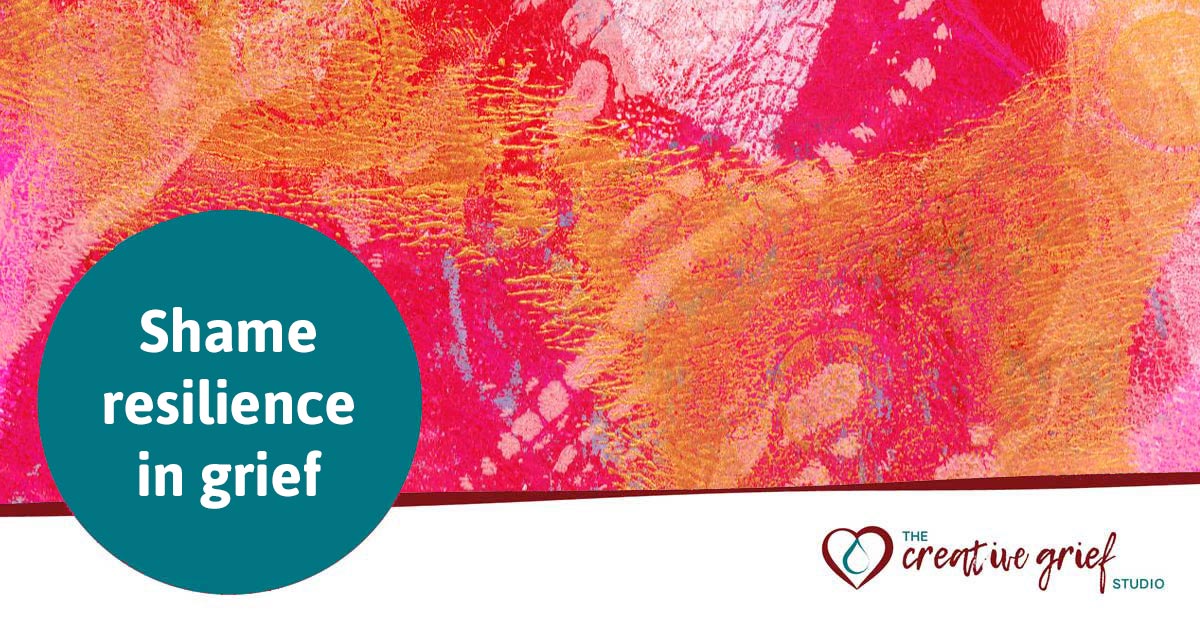Understanding the social nature of shame
At our Creative Grief Studio, we’re wanting our work to support shame resilience. So we try to always remember that we, as grief support professionals, are making contributions to the social discourses and ideas out there about what grief is, how to grieve, what seeking out grief support means, and how people respond to displays of vulnerability. We already find ourselves in a modern Western culture that abhors vulnerability, promotes limiting and binary ideas about how one should and shouldn’t grieve, and both implicitly and explicitly shames some aspects of the grief experience. And the professional world of grief support is not immune to the influence of these ideas.
Understanding shame’s effects and developing shame resilience
We teach about the potential damaging effects that shame can have on people’s ways of seeing themselves, and on their relationships and grief experiences as they make new meanings after loss. We’re concerned to make sure that we, as grief support professionals, are staying aware of the kinds of social discourses that can invite shame into the grief experience or into communities intended to offer grief support. We do this so that, as practitioners, we can take the lead in creating relationships, spaces, and discourses that help our clients to develop shame resilience and the sense of connection and belonging that can be so healing.
Is your practice growing shame resilience?
In your own experience as a Practitioner, ask yourself the following questions to assess your current process and the directions you’d like to take your practice:
- How do you see your clients building community during and after grief experiences? Do you know of the options available both online and offline, so that you can spread awareness of these options?
- How do you set up your grief support communities so that everyone supports each other to notice where shame might try to hamper a sense of connection and belonging?
- How do your guide members of your community to hold others up as they explore grief and shame?
- How do we shift models of grief experience so that we as grief support professionals and grief support communities stop prescribing right ways or wrong ways of “doing” grief?
- How do we make a community that is supportive of whatever our grief experiences are, while also supporting us to explore, learn, practice, grow if we so choose?
- As teachers and learners, how do we become aware of shame so that it can stop being a trigger that stops us and instead becomes a signal that we are needing something different than what is currently happening?
- How are you educating your grief support communities about the role of shame in grieving and meaning making after loss?
- And how can you work together as grief support community members to identify the social discourses that support shame to try to speak into grief experiences and expressions, so that together you can “come out of shame”?

